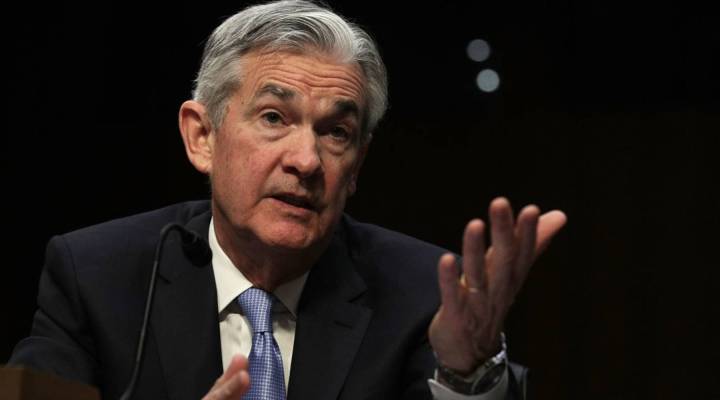
Explaining the work of the Federal Reserve

The Dow Jones Industrial Average and the S&P 500 suffered record breaking losses on Christmas Eve. The Dow dropped more than 650 points, the S&P fell 2.7 percent and the NASDAQ was down 2.2 percent.
There are many reasons for this, including a partial government shutdown, uncertainty about rising interest rates and alarm over President Donald Trump’s attack on the Federal Reserve.
Sarah Binder, a professor of political science at George Washington University and co-author of “The Myth of Independence: How Congress Governs the Federal Reserve,” said it’s an open legal question on whether the president can actually fire a Fed chair for anything other than breaking the law or serious misconduct.
Marketplace’s Sabri Ben-Achour asked Binder why the Fed exists and the purpose of raising and lowering interest rates:
Sarah Binder: The point of the Fed is really to manage the economy, manage growth, make sure that inflation doesn’t get too out of control so that the value of people’s money doesn’t deteriorate, but also to make sure that in times when the economy is doing poorly to make sure that Americans and businesses have access to credit. And they do that by raising and lowering the interest rates and other monetary tools. But they’re supposed to keep their eye on the medium to long term to try to make sure that the economy remains on a steady course.
Ben-Achour: One of the reasons why markets have reacted so badly to this is because it creates a sense that the Fed might not be independent, but on the other hand didn’t you write a book about how the Fed isn’t really independent?
Binder: It’s structurally independent. The Fed doesn’t have to turn to Congress for its budget. Fed governors have very long terms, but it sits in the middle of the political system, and it is probably the most important economic policymaker in the United States, if not the world. And that means it’s going to be subject to pressure from presidents, from lawmakers, from markets. And the question is how do they balance those political pressures against what they’re seeing in the economy to make choices about policy.
Ben-Achour: And as you mentioned the president’s been pressuring the Fed for the past year. What is different about this past week that seems to have shaken everybody?
Binder: Presidents, before Bill Clinton, regularly pressured the Fed but only when the economy was doing poorly. And that is what is so striking here. The Fed has achieved very low inflation, perhaps too low and it’s got record employment and so it’s just unusual that the president would push the Fed to be even more dovish at a time when we’re in ostensibly such a strong recovery.
Ben-Achour: Where do we go from here?
Binder: So, I think that’s the big question for the Fed, is how does the credibility of the Fed come out of these attacks by the president, which have been going on for a good year, even as the Fed has been incrementally raising rates. But just the sheer mention of the potential that he might dismiss [Federal Reserve chairman] Jay Powell, that is destabilizing in itself and creates an open question about how the Fed comes through the crisis.
There’s a lot happening in the world. Through it all, Marketplace is here for you.
You rely on Marketplace to break down the world’s events and tell you how it affects you in a fact-based, approachable way. We rely on your financial support to keep making that possible.
Your donation today powers the independent journalism that you rely on. For just $5/month, you can help sustain Marketplace so we can keep reporting on the things that matter to you.


















